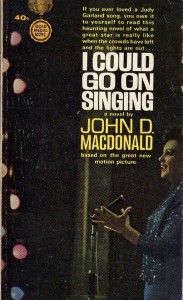Writing fiction is a mental and physical endeavor. But in different ways, heart is central, too.
Today’s Words of Wisdom reaches into the KZB archives to look at writing with heart, finding out what your characters love in their hearts, and summing up the heart of your novel in a slogan, thanks to posts by James Scott Bell, Joanna Campbell Slan, and PJ Parrish.

Lesson: If you’re going to get your writing noticed, read, published and re-read, you have to put your heart into it.
You’ve no doubt heard that before. At least once at every writer’s conference, you’ll hear someone on a panel say, “Forget chasing the market. Just write the book of your heart.”
I understand what’s being said, though I would tweak it a bit. You have to find the intersection of the market and your heart, then get that heart beating.
I’m a professional writer. I cannot afford to frolic in the fields of eccentric experimentation. But that doesn’t mean I only write what I think will make money.
There are those who have done that. Nicholas Sparks is right up front about how he chose his genre. He saw the tear-jerker-romance-by-a-male-author slot as a great business opportunity. David Morrell talks about this in his fine book, Lessons From a Lifetime of Writing. Morrell himself says he couldn’t do it that way. He has to have something “gnawing” at him to write. He has to find the heart of the matter.
It’s like when I was a criminal defense lawyer. (Spare me the jokes. When your son or daughter is arrested, you’ll call someone like me.) Anyway, defense lawyers have an essential part to play in our system of justice. It’s called upholding the Constitution. That’s what you have to believe when you’re defending someone who is pretty much cooked as far as the evidence goes. You have to believe that, or you’ll do a lousy job.
I write for readers. I write so that readers will enjoy what I write and buy my next book. But to do that, I have to find the heart of the story and ramp up the passion level.
See, the unexpurgated “book of my heart” would be a post-realistic satirical look at the philosophy department of a major university, written somewhat in the style of Kurt Vonnegut channeling Jack Kerouac.
Could I sell such a book? I don’t know. I know I’d enjoy writing it, but I also know it would be tough to sell a marketing department on it.
I could write it for fun, and might someday, but right now I need to keep earning a living.
So what I do is take my favorite genre, thrillers, think up concepts and then make them the book of my heart. I find ways to fall in love with my story.
The way it happens for me is through characters, getting to know them deeply, creating a colorful supporting cast –– and then scaring the living daylights out of them in the plot.
James Scott Bell—June 13, 2010
Here’s the Test
There’s an old adage: “Tell me who you love and I’ll tell you who you are.” It’s a great test to apply to our characters. Ask yourself, “Who or what does my character love?”
What Characters Are Driven to Do
Love is not only powerful; it also makes fools out of most of us. As authors we can use this primal drive to explain situations that would otherwise seem absurd.
Think back to Gone with the Wind. In the book, it’s Scarlett’s love for Tara that compels her to marry one unsuitable man after another. It’s her love of family that sends this fragile flower out into the fields to work like a common laborer. And her love of Ashley Wilkes forces her to remain beside his wife, Melanie, even as the Yankees approach.
Love Causes Conflicts of All Sizes
We all know the story of Romeo and Juliet, but love for life’s small pleasures can also cause our characters problems. Kiki Lowenstein loves food. Especially desserts. In many of my Kiki books, this amateur sleuth’s attention gets side-tracked when someone waves a particularly luscious treat under her nose. In one book, a nasty crafter ruins Kiki’s artwork while Kiki is too busy eating a gingerbread cupcake to keep an eye on her materials.
Telling Versus Showing
Of course, it’s not enough to tell our readers that our character loves someone or something. We have to show this emotion in practice. One way is by forcing our characters to make tough choices. When Cara Mia Delgatto adopts a Chihuahua with a broken leg, she doesn’t need one more complication in her life. However, she’s willing to adjust her world to accommodate the ailing pup because he’s a rescue dog, and Cara is all about second chances.
How our characters spend their time is another way we show what they value. If a character doesn’t spend time with his children, readers might assume they aren’t an important part of that character’s life. However, if a tattered family photo falls out of the character’s wallet as he pulls out a dollar bill, we have to believe his children matter, but something keeps him away from them.
Characters can demonstrate their love by their reactions. Perhaps your character’s voice changes when he’s talking to his wife. Or maybe your protagonist gets teary-eyed when coming across a man’s jacket in her closet. These responses show the reader a powerful emotion at work.
The next time you create a character, ask yourself who or what this particular player loves. Make a list. Using what you learn will help you build a more realistic, well-rounded character that readers will relate to.
Joanna Campbell Slan—May 6, 2015
All great stories can be summed up in just a couple words. And if you can’t boil your own story down to a juicy headline, then maybe you don’t really know what your story is about at its heart.
If you’ve ever had to write a concept or produce your own back copy, you know how hard this is. Or if you’ve ever tried to convince an editor at a writers conference to read your manuscript. This is known as “the elevator pitch” — you have to sell an agent your story in time it takes to go up four floors in the hotel elevator.
And when you do get published, it’s useful if you ever find yourself at a book signing and someone asks you, “So, what’s your book about?”
You don’t regurgitate plot. You give them the elevator pitch. And if you can’t answer in three sentences or less, chances are you’ve lost a sale.
Think about advertising. A pithy pitch sells the product. Take the slogan “A Diamond Is Forever,” which has appeared in every De Beers ad since 1948. Diamonds are inherently worthless. Your ring drops in value 50 percent the moment you leave Zales. But with one slogan De Beers made a diamond into a symbol of wealth and romance. It perfect captures a deep sentiment — a diamond, like your relationship, is eternal.
Coming up with a headline or slogan for your story is a great clarifying exercise. It makes you think beyond mere plot and deep into that sweet spot where story, character and theme mesh.
Okay, enough lecture. Let’s have some fun.
Here is a cool little exercise to get your brain moving to think about story slogans. It was created by screenwriter Nat Ruegger. Take any common advertising slogan, like for Kentucky Fried Chicken or Volvo. Put it into the past tense and make it the first line of your book and see where it takes you.
I struggle coming up with opening paragraphs so I was leery. But I tried this with the Lays Potato Chips slogan — “You Can’t Stop At Just One.” (later changed to “Betcha can’t stop at just one.”)
I couldn’t stop at just one. Believe me, I tried. Maybe it was because I was so hung up on blonde hair, especially when it was braided, falling down a girl’s back like a piece of rope. My first had braided blonde hair. I strangled her with my bare hands, but for all the others after that, I used a yellow rope. I guess because I wanted to get the taste of that first one back again. The first is the most delicious, you see.
I almost went with Nike’s “Just Do It.” It was inspired by the death row words of murderer Gary Gilmore — “Let’s do it.” Seems to me there’s a good serial killer first-person thriller that opened with “I just did it.”
Then I thought of Taco Bell’s slogan “Head for the Border!” That made me think of consummate storyteller Bruce Springsteen and his song “Highway Patrolman.” It opens with these lyrics:
My name is Joe Roberts, I work for the state
I’m a sergeant out of Perrineville barracks number 8
I always done an honest job as honest as I could
I got a brother named Franky and Franky ain’t no good
Now ever since we was young kids it’s been the same comedown
I get a call on the shortwave, Franky’s in trouble downtown
Well if it was any other man, I’d put him straight away
But when it’s your brother sometimes you look the other way
The song ends with Joe in squad-car pursuit after his brother, who has stabbed a man and is on the run. I could see a story beginning late in the scene with this line: “He headed for the border.” Here’s how Springsteen ended his song:
Well I chased him through them county roads
Till a sign said Canadian border five miles from here
I pulled over the side of the highway and watched his taillights disappear
One more. I next tried Clairol’s famous slogan “Does She Or Doesn’t She?” (Only her hairdresser knows for sure). It seemed ideal for a cozy set in a hair salon:
Did she or didn’t she? No one would ever really know. Because when Marcel Marseau, the owner of the chi-chi Palm Beach salon To Dye For, was found floating in the water hazard of the 17th hole of the Everglades Golf Course, we all suspected Lily Van Pulletzer. But then her body was found stuffed in the butler’s pantry at Mar-a-Lago, and I knew this was going to be the toughest case of my career.
Okay, now you see why I don’t write humor. But you get the point. A great slogan can get your motor running when you’re stuck in neutral. And maybe if you can write a great slogan or headline for your story, you can figure out what you are really trying to say.
Now it’s your turn. Think of a good slogan and put it in the past tense. Pick first person or third and give us a great opening paragraph to a fabulous crime story.
PJ Parrish—October 6, 2020
***
- Do you have a book of heart you’ve written or that is waiting to be written?
- How important is knowing what your characters love to you?
- Can you come up with a slogan that sums up your novel? If you do, please feel free to share.



